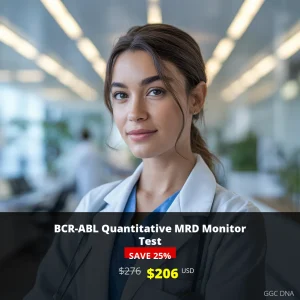Glioma Prognostic Panel Test: Comprehensive Brain Tumor Genetic Analysis
Understanding Glioma Prognostic Testing
The Glioma Prognostic Panel Test represents a breakthrough in personalized brain cancer care, offering comprehensive genetic analysis of glioma tumors to guide treatment decisions and predict patient outcomes. This advanced molecular diagnostic test examines specific genetic biomarkers that significantly influence glioma behavior, treatment response, and long-term prognosis.
What This Test Measures and Detects
Our sophisticated Glioma Prognostic Panel analyzes three critical genetic markers that play pivotal roles in glioma development and progression:
- IDH1 Mutations: Identifies isocitrate dehydrogenase 1 gene mutations, which are associated with better prognosis and specific glioma subtypes
- IDH2 Mutations: Detects isocitrate dehydrogenase 2 gene alterations that influence metabolic pathways in tumor cells
- MGMT Promoter Methylation: Assesses O6-methylguanine-DNA methyltransferase promoter methylation status, a key predictor of response to temozolomide chemotherapy
Who Should Consider This Test
This comprehensive genetic panel is particularly valuable for individuals experiencing or diagnosed with:
- Newly diagnosed glioma or suspected brain tumors
- Recurrent glioma requiring updated genetic profiling
- Patients with symptoms including persistent headaches, seizures, cognitive changes, or neurological deficits
- Individuals with family history of brain tumors or genetic cancer syndromes
- Patients considering targeted therapy or immunotherapy options
Key Benefits of Glioma Prognostic Testing
Personalized Treatment Planning
The genetic information obtained from this panel enables oncologists to develop highly personalized treatment strategies based on your tumor’s specific genetic profile.
Accurate Prognosis Prediction
Understanding your glioma’s genetic characteristics provides crucial insights into expected disease progression and survival outcomes.
Informed Therapeutic Decisions
The MGMT promoter methylation status directly influences chemotherapy effectiveness, helping determine whether temozolomide treatment is likely to be beneficial.
Clinical Trial Eligibility
Specific genetic markers may qualify patients for targeted therapy clinical trials and emerging treatment protocols.
Understanding Your Test Results
Your comprehensive test report will provide detailed information about each genetic marker analyzed:
- IDH1/IDH2 Status: Mutations typically indicate better prognosis and may guide targeted therapy options
- MGMT Promoter Methylation: Methylated status suggests improved response to certain chemotherapy agents
- Integrated Prognostic Assessment: Combined analysis provides a comprehensive view of your tumor’s genetic landscape
Your oncologist will interpret these results in the context of your specific clinical situation, tumor characteristics, and overall health status to develop the most effective treatment plan.
Test Pricing and Availability
| Price Type | Amount (USD) |
|---|---|
| Discount Price | $526 |
| Regular Price | $626 |
Test Specifications
- Turnaround Time: 15 working days (sample submitted by 11 am)
- Sample Type: Formalin fixed paraffin embedded (FFPE) tissue block with minimum 5% tumor tissue
- Shipping: Room temperature
- Methodology: PCR and Next Generation Sequencing
- Specialty: Oncologist-recommended testing
- Department: Molecular Diagnostics
Nationwide Accessibility
We proudly serve patients across the United States with convenient testing locations in all major metropolitan areas including New York, Los Angeles, Chicago, Houston, Phoenix, Philadelphia, San Antonio, San Diego, Dallas, and San Jose. Our extensive network ensures accessible, high-quality molecular diagnostics for brain tumor patients nationwide.
Take Control of Your Brain Cancer Journey
Don’t leave your treatment decisions to chance. The Glioma Prognostic Panel Test provides the critical genetic information needed to make informed decisions about your brain cancer care. With results available in just 15 working days and comprehensive genetic analysis of IDH1, IDH2, and MGMT biomarkers, this test represents a vital step toward personalized, effective glioma management.
Ready to gain crucial insights into your glioma prognosis? Call our dedicated patient care team today at +1(267) 388-9828 to schedule your Glioma Prognostic Panel Test or to speak with a genetic counseling specialist about how this advanced testing can benefit your treatment journey.
Take the first step toward personalized brain cancer care – book your comprehensive genetic assessment now and empower yourself with the knowledge needed to fight glioma effectively.







